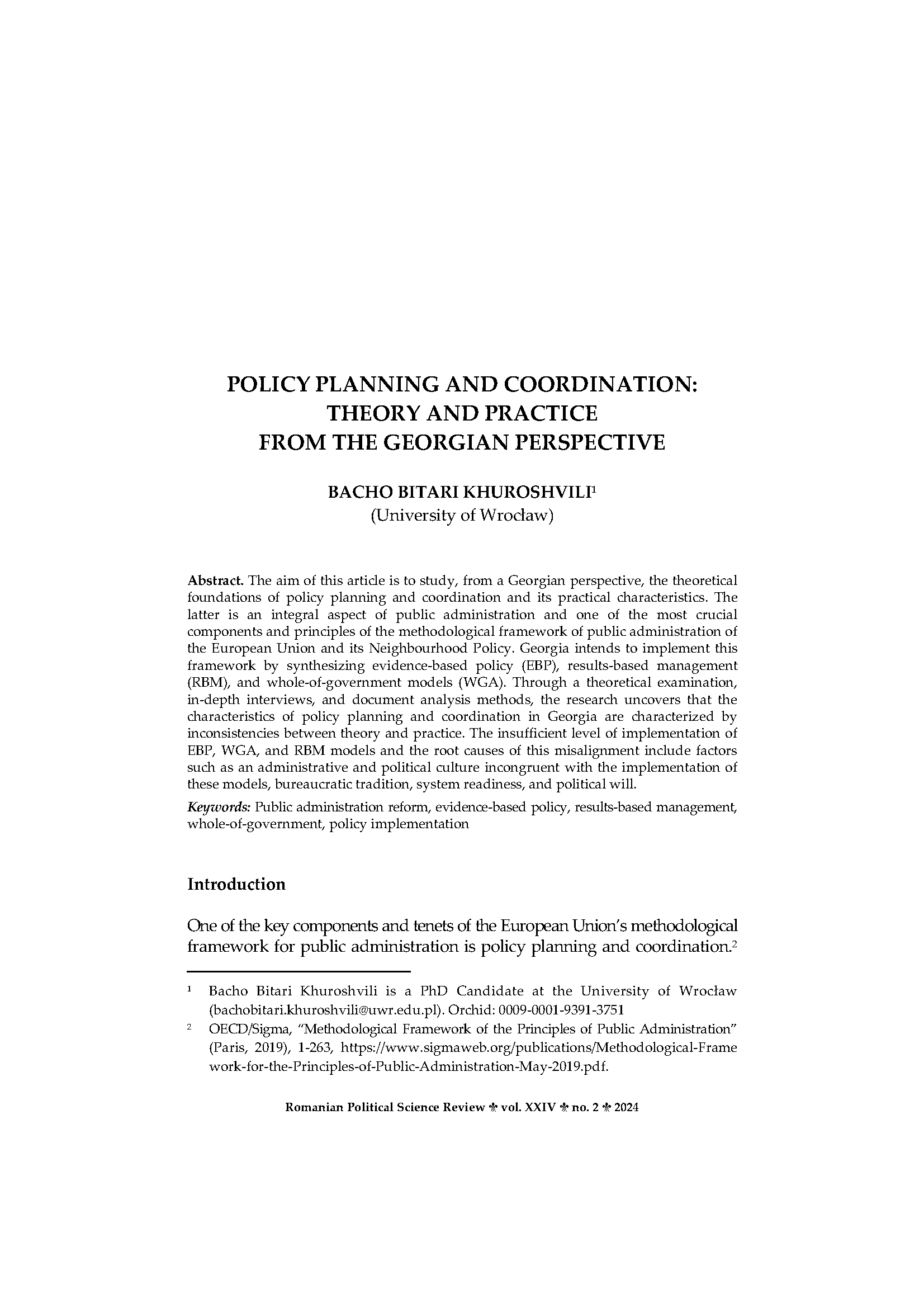POLICY PLANNING AND COORDINATION: THEORY AND PRACTICE FROM THE GEORGIAN PERSPECTIVE
DOI:
https://doi.org/10.62229/sprps24-2/4Keywords:
Public administration reform, evidence-based policy, results-based management, whole-of-government, policy implementationAbstract
The aim of this article is to study, from a Georgian perspective, the theoretical foundations of policy planning and coordination and its practical characteristics. The latter is an integral aspect of public administration and one of the most crucial components and principles of the methodological framework of public administration of the European Union and its Neighbourhood Policy. Georgia intends to implement this framework by synthesizing evidence-based policy (EBP), results-based management (RBM), and whole-of-government models (WGA). Through a theoretical examination, in-depth interviews, and document analysis methods, the research uncovers that the characteristics of policy planning and coordination in Georgia are characterized by inconsistencies between theory and practice. The insufficient level of implementation of EBP, WGA, and RBM models and the root causes of this misalignment include factors such as an administrative and political culture incongruent with the implementation of these models, bureaucratic tradition, system readiness, and political will.





